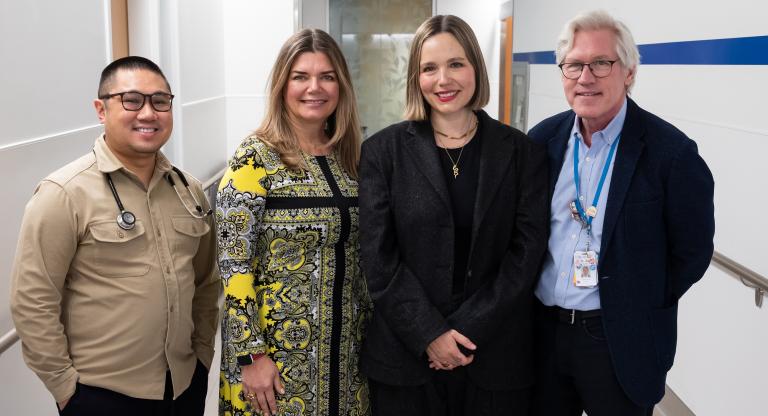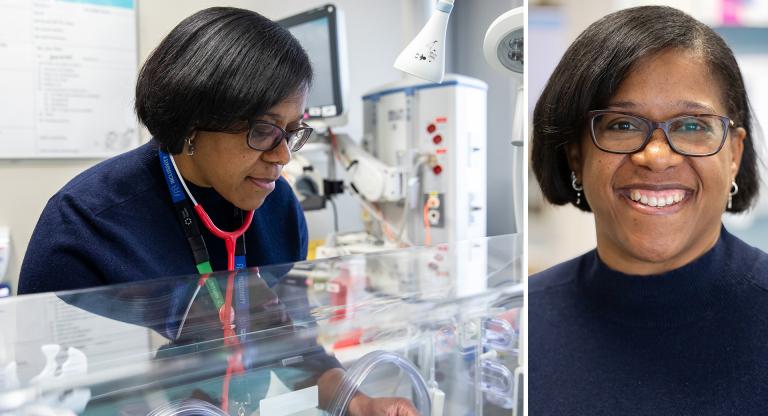Clinical research team advances obstetric care with new blood test

An interdisciplinary clinical research team at Mount Sinai Hospital is taking an innovative approach to improving the health of mothers and babies, and making leaps when it comes to obstetrics care.
Dr. John Kingdom, Maternal Fetal-Medicine Specialist in the Department of Obstetrics and Gynaecology at Mount Sinai, Chair of Obstetrics and Gynaecology at the University of Toronto, and scientist at the hospital’s Lunenfeld-Tanenbaum Research Institute (LTRI) and Dr. Kelsey McLaughlin, a Research Associate working with the Department of Obstetrics and Gynaecology and Division of Cardiology at Mount Sinai Hospital, are working together to improve how pregnant women with preeclampsia are screened, diagnosed and treated. Preeclampsia is a potentially life-threatening complication of pregnancy that is characterized by high blood pressure and other organ damage.
Dr. Kingdom and Dr. McLaughlin are researching how a simple blood test that measures levels of a protein that comes from the placenta, called Placental Growth Factor (PlGF), can alert clinicians if pregnant women are at high risk for preeclampsia and other pregnancy complications before disease symptoms begin.
Making one of the biggest leaps in obstetrics care in recent memory, Mount Sinai Hospital is currently the only site in North America to include PlGF testing into clinical care of pregnant women. PlGF testing early in pregnancy can help to identify which pregnant women need increased observation and care. PlGF testing can also be used to identify women with preeclampsia when they present to triage with symptoms of the disease, including high blood pressure. This innovative blood test provides doctors with critical information necessary to proactively identify and treat high-risk pregnant women, and ultimately, potentially lower both maternal and infant adverse outcomes.
This research program has required significant input from disciplines across the hospital. Dr. McLaughlin says “this research is a team effort – we are considering women with preeclampsia and other blood pressure conditions from a cardiovascular perspective, requiring input from the physicians and scientists in the cardiology division at Mount Sinai. Tapping into the expertise of our colleagues in high-risk maternal fetal medicine, nephrology, the medical informatics team and researchers at the LTRI makes for an incredibly collaborative approach that greatly improves our efforts to improve clinical care for high-risk pregnant women.”
Dr. Kingdom adds that Mount Sinai is uniquely situated to do this kind of potentially life-saving work. “As an academic hospital with ties to the University of Toronto, with a world-class Women and Infants Program, and being located in Toronto with so many other fantastic hospitals literally down and across the street, we are able to draw on some of the smartest people working today to help save lives.”
Dr. McLaughlin and Dr. Kingdom have published several related studies recently, including work published in Hypertension, Journal of the American Heart Association, British Journal of Clinical Pharmacology, and the Canadian Journal of Cardiology. Their work has been recognized by both Canadian Institute of Health Research funding, as well as backing from the Alva Foundation a private, competitive grant.












